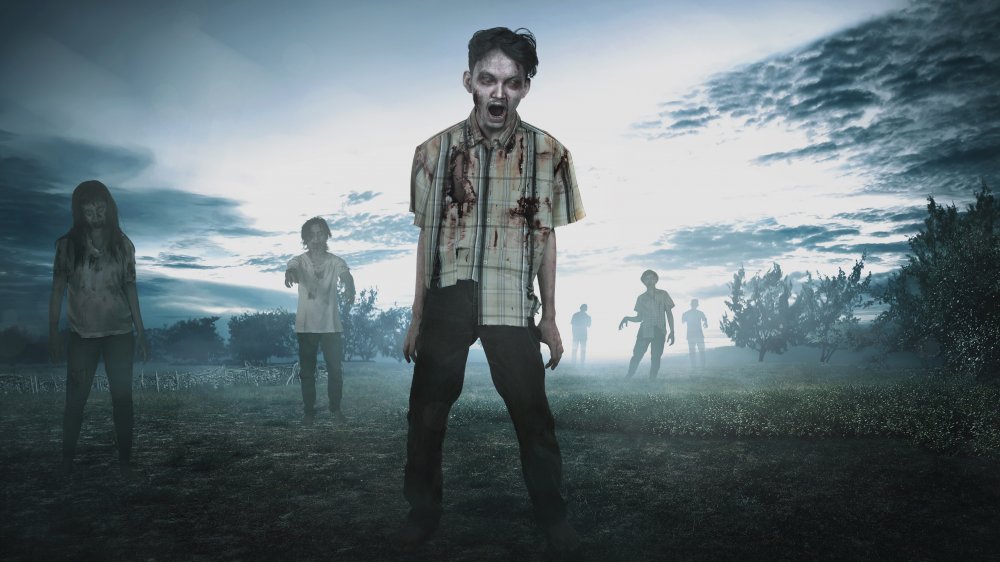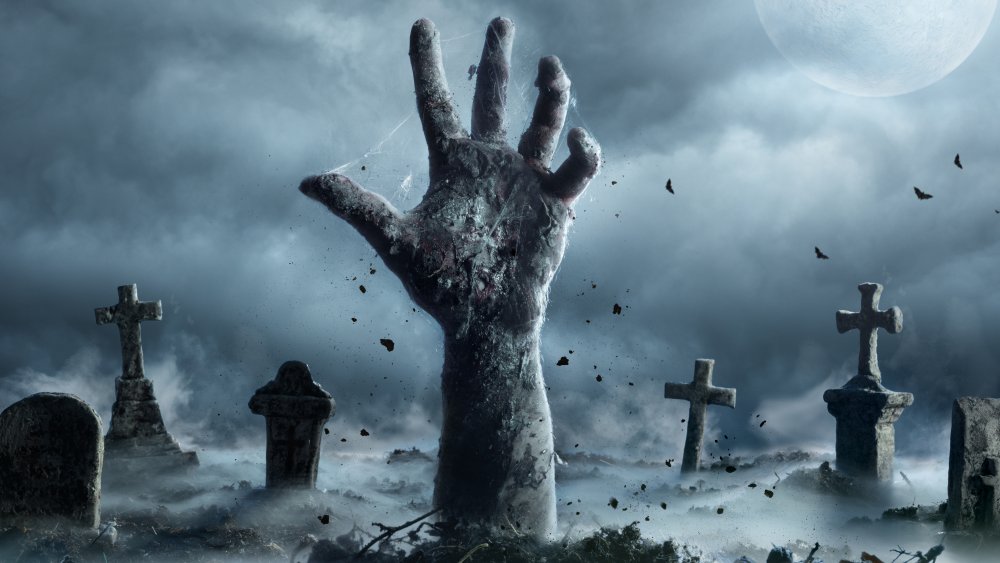The Untold Origin Of Zombies
They're probably just kidding, right? Surely the Centers for Disease Control and Prevention (CDC) was having a laugh with their "Zombie Preparedness" page, right? All of those George Romero movies, and The Walking Dead (which never uses the word "zombie," but we know what they mean), and even Shaun of the Dead — just entertainment. Everybody knows that.
Except –
Like a lot of entertaining fiction, there's more than a grain of tetrodotoxin, and truth, in the storytelling. Though they've been part of cinematic fiction for a while — 1932's White Zombie is usually considered the first of the genre, according to Paste — they grabbed a solid handhold on pop culture in 1968 with George Romero's Night of the Living Dead (another which never utters the word "zombie"). Romero's characters are dealing with an incursion of the living dead that's caused by radiation released by a space probe returned from Venus (as they tend to do).
Zombies never say "Well, you only live once"
The reanimated corpses set the table (so to speak) for future zombie movies and TV series: slow-moving, impervious to pain, only stay dead with decapitation or destruction of the brain, a taste for living human flesh. But it's White Zombie that adheres (kind of) to the literal truth of zombification, which, according to legend, happened in the Caribbean, particularly in Haiti. The culture there speaks of zombies (and yes, they use the word; that's where it originates) who have been bewitched in a way, usually to turn the victim into a sort of mindless slave under the control of its master — a metaphor for the very real horrors of very real slavery. History tells us that zombies were revived dead, brought back by a voodoo practitioner known as a bokor or, per Live Science, houngan. The bokor creates a "zombie powder" which, given to the victim, feigns death. The bokor then revives the not-quite-dead individual, who is then under the power of the bokor. Haitians don't necessarily fear zombies, but they very much fear becoming one, as the University of Michigan says.
You do not want to become a zombie
Complicating matters was Clairvius Narcisse, who presented himself to Haitian physicians in 1980, claiming to have been revived after his death in 1962, as How Stuff Works reports. Acceptance of his story was mixed, but it did spark The Zombie Project. Dr. Wade Davis, an ethnobotanist and anthropologist, decided to research the truth (or lack of it) behind zombie powders and zombification. Dr. Davis examined different zombie powders from different parts of Haiti and discovered some common elements, including tetrodotoxin, a neurotoxin found in puffer fish (among others). If the dose is strong enough, it causes death; low enough, it causes paralysis.
No surprise, but more than one colleague found fault with Davis's research. He wrote books reporting, then defending, his findings. In the meantime, the British medical journal The Lancet reported in 1997 on three verifiable cases of medical zombification. One year later, Scoobie-Doo battled the undead on Zombie Island. So there must be something to it, right? Because the CDC doesn't kid around, does it?


